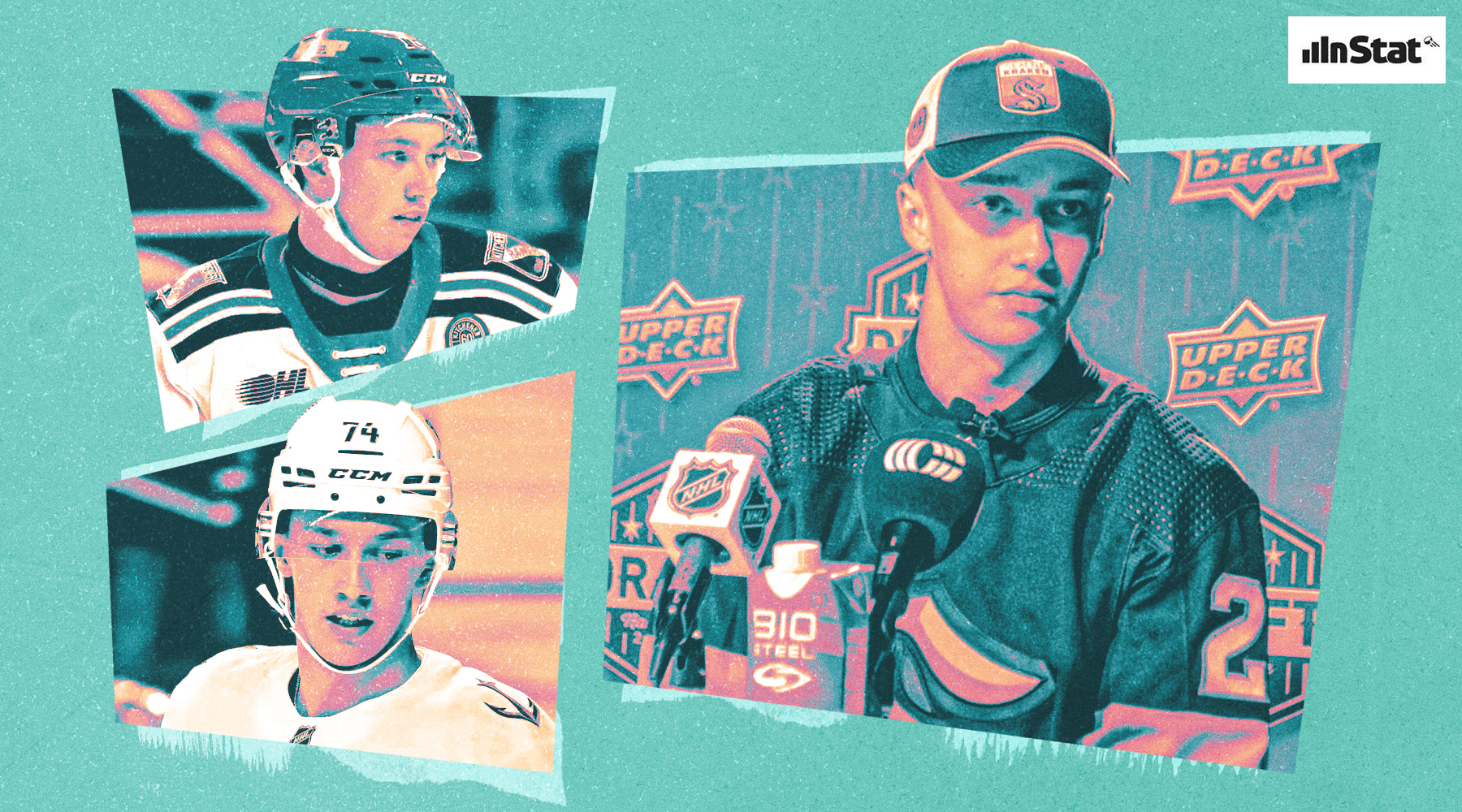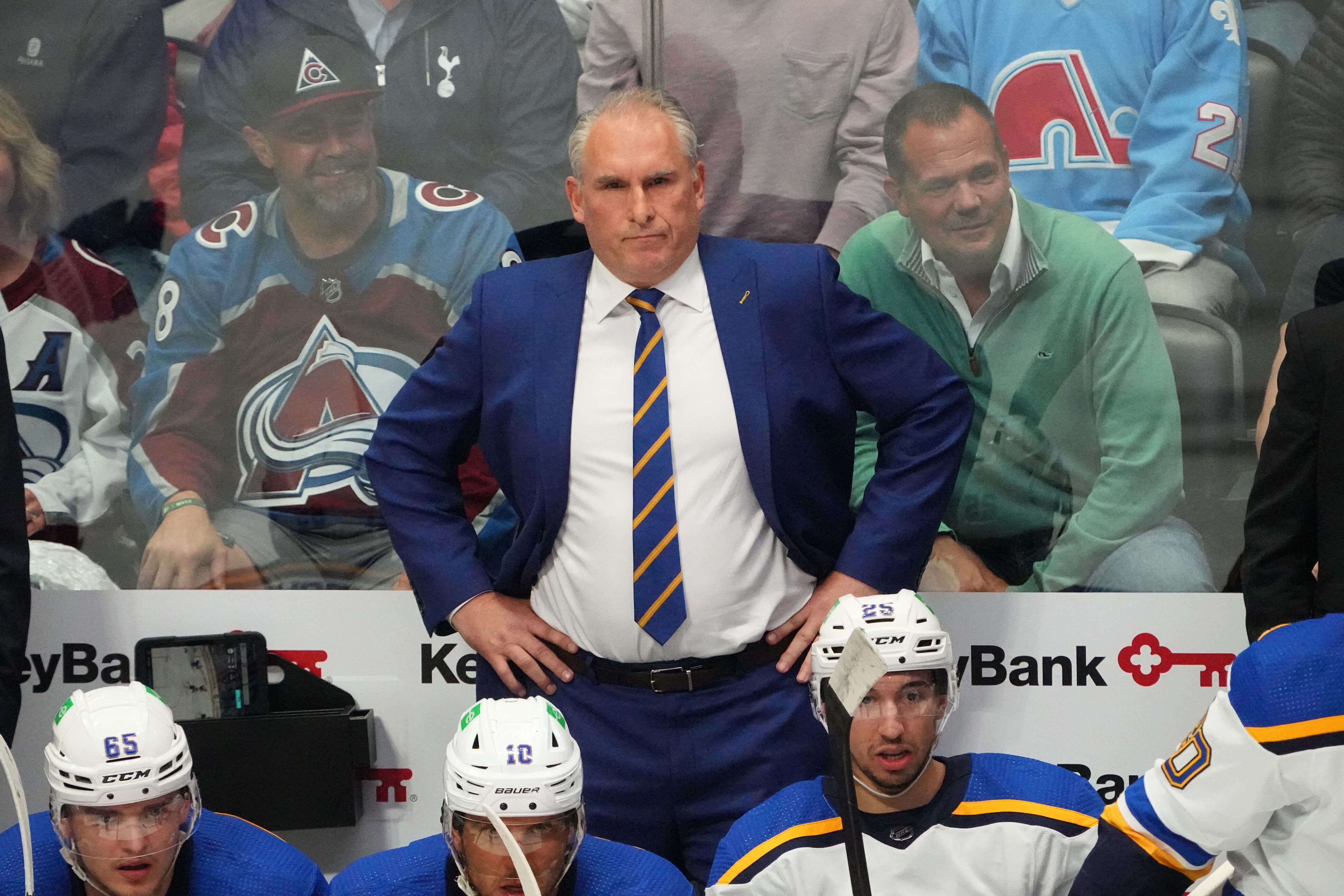Hockey Canada 2024 World Junior Selection Camp Notebook
OAKVILLE, Ontario – It was a fast four days at Hockey Canada's 2024 World Junior Selection Camp, and the end result is that we now know the composition of the team tasked with chasing back-to-back-to-back gold in Gothenburg, Sweden.
Head coach Alan Letang and his staff had many difficult decisions to make following Canada's 6-1 loss to USports to close it all out. It felt as though there were more players on the bubble than usual, and there weren’t many standout performers in either game.
Six players didn’t play in either of Canada’s scrimmages against USports as presumptive locks, poised to play key roles for the 2024 team: Conor Geekie (Arizona Coyotes), Maveric Lamoureux (Arizona Coyotes), Tristan Luneau (Anaheim Ducks), Denton Mateychuk (Columbus Blue Jackets), Fraser Minten (Toronto Maple Leafs) and Matthew Savoie (Buffalo Sabres). As Canada’s lone returning player, Owen Beck (Montréal Canadiens) sat out the second game as well.
On paper, it’s a weaker offensive team than we're accustomed to seeing don the maple leaf. Jagger Firkus’ cut wasn’t all too surprising for those of us who were in Oakville all week, but it could prove to be costly at the tournament if Canada struggles to score, especially up against juggernauts USA and Sweden.
Overall, the line combinations up front lacked chemistry. Halifax Mooseheads teammates Jordan Dumais (Blue Jackets) and Markus Vidicek (2024 NHL Draft) didn’t look like their usual selves when they played together in Game 1, and the London Knights duo of Easton Cowan (Maple Leafs) and Denver Barkey (Philadelphia Flyers) was rendered ineffective when reunited for Game 2. Their struggles likely hurt both Vidicek’s and Barkey’s chances to make this team.
The defenders battling for blueline spots didn’t instill much more confidence. As the lone 2005-born defender to play both games, Oliver Bonk (Flyers) looked like Canada’s best defender from the OHL. Michael Buchinger (St. Louis Blues), Ty Nelson (Seattle Kraken), and Jorian Donovan (Ottawa Senators) struggled with in-zone coverage and were unsurprising cuts.
Canada ultimately went with a QMJHL-heavy blueline, which was a sensible call based on camp performances. Noah Warren (Anaheim Ducks) and Jake Furlong (San Jose Sharks) were the strongest defence pair in both games.
Macklin Celebrini held his own
If he hasn’t cemented his status as a first-overall talent with his play in the NCAA so far this season, Macklin Celebrini reminded us all of his ability to dominate against any opponent in Oakville, thriving against older players.
He played Game 1 on the wing with Vidicek and Dumais – two Mooseheads teammates – and was still the most dynamic presence on that line, making an impact with every shift.
However, once he shifted back to the middle for Game 2 (centring Dumais and Carson Rehkopf), it was clear that was where he belonged. He scored Canada’s lone goal of that game, starting and then finishing a give-and-go play with a perfect deke around goaltender Scott Ratzlaff (Sabres) in tight.
Celebrini was a consistent off-puck force for his line and generated several more scoring chances through his board play, exposing defenders with his ability to anticipate and read the play. Although I would have liked to see him play with U18s linemate Matthew Wood (Nashville Predators), it was reassuring to see how comfortable he looked with whoever he was on the ice with.
On a team lacking gamebreaking talent with several of their best players in the NHL, Celebrini's ability to drive offence will be critical for Canada. If this week in Oakville was any indication, he's more than up to that task.
Team Canada not yet fully healthy
Tanner Molendyk’s (Nashville Predators) status was in question heading into camp as he worked to recover from a knee injury. Although he laboured in practice skates, he was healthy enough to play in Canada’s second game and looked no worse for wear, although it was clear on some shifts that he still isn’t at 100%.
Dumais missed both the second and third periods with what Letang described as a “hip-flexor issue” that they wanted to protect.
Both players ended up making the team, and the coaching staff didn’t seem too concerned about the injuries long-term. Expect both players to be ready to go by Boxing Day.
Surprise cuts
With Geekie and Savoie locked into spots on this roster, attention shifted to their WHL league mates, Brayden Yager (Pittsburgh Penguins), Nate Danielson (Detroit Red Wings), and Firkus.
Danielson played on the fourth line in both games, and he was decently effective, especially after he was promoted to the top line with Celebrini and Rehkopf once Dumais left the second scrimmage. A strong second game cemented his spot on this roster, and he will likely anchor the fourth line.
Unfortunately for Yager and Firkus, their contributions were few and far between, despite playing on the second line together for both games. They struggled to connect in the offensive zone, and neither of them was leveraging their shot to much effect. Both faded into the background quickly, and neither looked fully comfortable in the roles they were asked to play. While Yager eventually made the team, Firkus ended up being a surprising casualty for many.
However, the growing belief throughout camp seemed to be that Firkus would end up being a certain cut. Hockey Canada’s management lead for the 2024 World Juniors team, Peter Anholt, spoke to the media about Firkus’ cut after the roster was named.
As the general manager for the WHL’s Lethbridge Hurricanes, Anholt spoke candidly about being intimately familiar with Firkus’ dynamic offensive presence, admitting that he was “surprised” to see Firkus struggle throughout camp, and that he “just didn’t have it”.
The more surprising cut, at least for those of us in the media who were in Oakville this week, was Barkey. There was the potential for him to form a formidable penalty kill duo with Cowan, and he was one of the most consistent forwards at camp (along with Owen Allard). Unfortunately, size likely played into his being cut in favour of players like Danielson and Allard, who are both 6-foot-2 compared to Barkey, who is just 5-foot-9.
As for the goaltenders, if you had told hockey fans that Domenic DiVincentiis (Winnipeg Jets) would be the one goalie cut after selection camp, that would have raised more than a few eyebrows (if not elicited some outraged responses). However, the Jets prospect struggled the most at camp, allowing several soft goals from close range; his rebound control was a problem and he looked as if he was in his own head at times.
Given that all three other netminders were near-perfect in their stints between the pipes (Mathis Rousseau was the only Canadian goalie to pitch a shutout), it seemed like a foregone conclusion that DiVincentiis would, unfortunately,, be the odd man out.
Could NHL reinforcements be on the way?
Canada only named 12 forwards to their final roster, leaving one spot open up front. The belief in the media is that perhaps one of Zach Benson (Buffalo Sabres) or Matthew Poitras (Boston Bruins) will be loaned out to the team for the tournament.
Although TSN's Darren Dreger reported on Twitter that the odds of either loan happening are “doubtful”, Canada still has the option to fly a 13th forward out to Sweden closer to the tournament’s start.
It’s worth noting that when the final team was announced in Oakville, players donned the jersey numbers they would be wearing during the tournament. Notable numbers not used? That would be 9 and 11. We know Hockey Canada is holding out hope for Benson, but what about Adam Fantilli with the Columbus Blue Jackets?
In the event that Canada does not receive any NHL help, expect them to recall one of the four forward cuts from the selection camp to join them overseas.
Asked Salmond if there was a conversation had with one of the cuts to say “You’re next up” in the event that they don’t get an NHLer back.
— Scott Wheeler (@scottcwheeler) December 14, 2023
He said they debated telling someone that, and going with 13, but felt it wouldn’t be fair to bring someone to Sweden and then cut them.
Canada's potential lineup
Geekie-Minten-Savoie
Rehkopf-Celebrini-Dumais
Cowan-Beck-Wood
Allard-Danielson-Yager
Mateychuk-Lamoureux
Molendyk-Luneau
Warren-Furlong
Bonk
Rousseau
Ratzlaff
St-Hilaire



